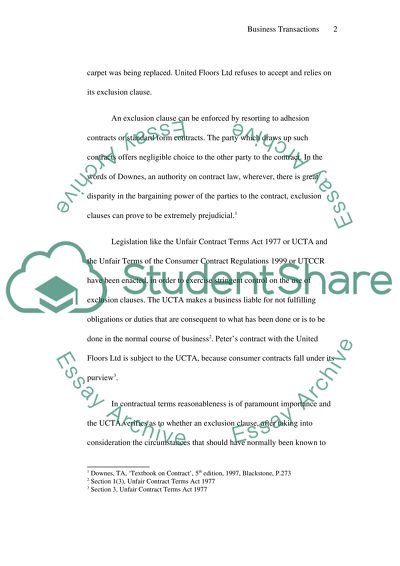Cite this document
(Law of Business Transactions Assignment Example | Topics and Well Written Essays - 2158 words, n.d.)
Law of Business Transactions Assignment Example | Topics and Well Written Essays - 2158 words. Retrieved from https://studentshare.org/law/1544045-law-of-business-transactions-assignment
Law of Business Transactions Assignment Example | Topics and Well Written Essays - 2158 words. Retrieved from https://studentshare.org/law/1544045-law-of-business-transactions-assignment
(Law of Business Transactions Assignment Example | Topics and Well Written Essays - 2158 Words)
Law of Business Transactions Assignment Example | Topics and Well Written Essays - 2158 Words. https://studentshare.org/law/1544045-law-of-business-transactions-assignment.
Law of Business Transactions Assignment Example | Topics and Well Written Essays - 2158 Words. https://studentshare.org/law/1544045-law-of-business-transactions-assignment.
“Law of Business Transactions Assignment Example | Topics and Well Written Essays - 2158 Words”, n.d. https://studentshare.org/law/1544045-law-of-business-transactions-assignment.


